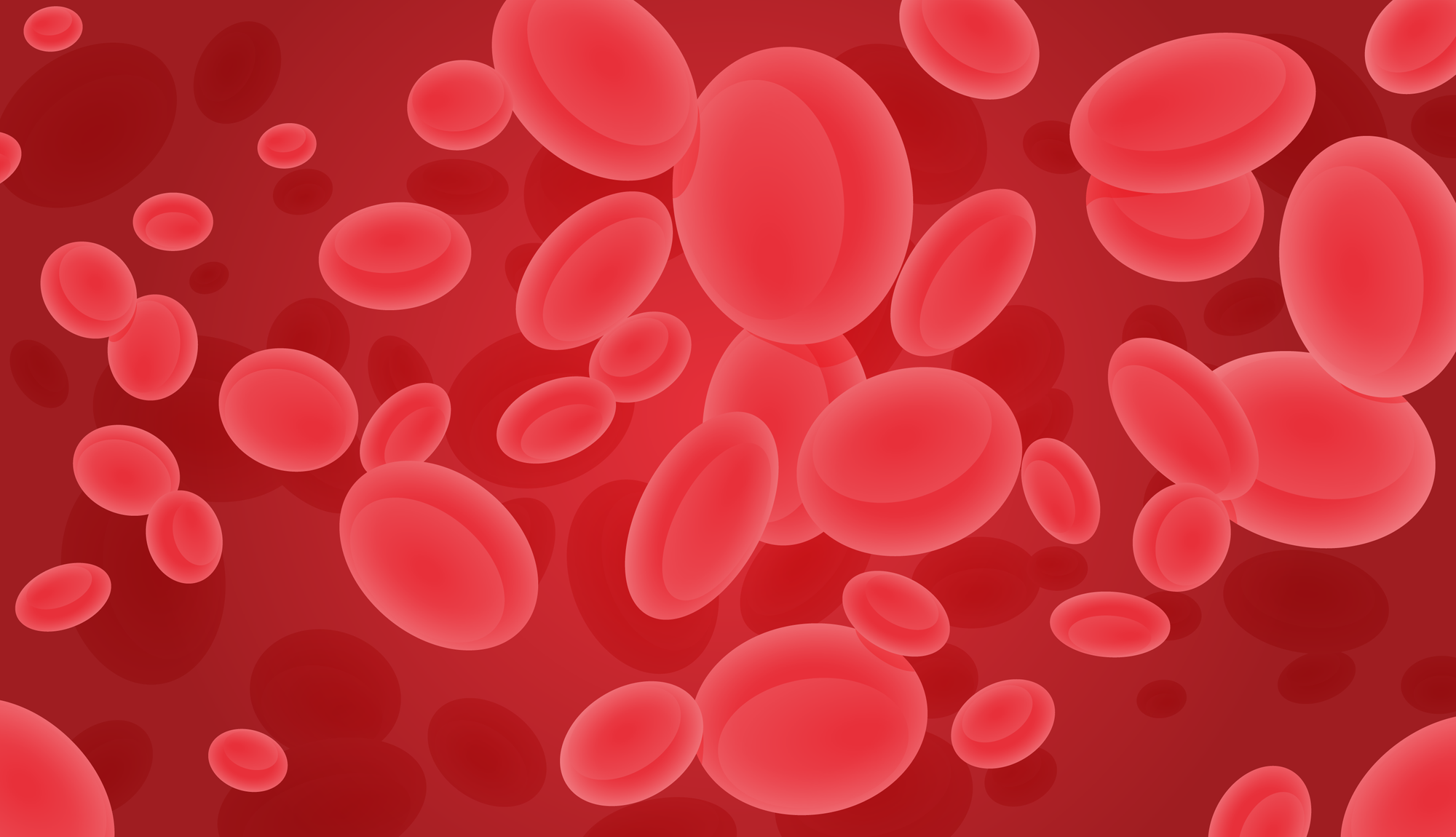Erythropoietin (EPO) is a hormone that helps the body maintain optimal oxygen levels by stimulating the production of red blood cells. EPO plays a role in several diseases, but it is mainly known as the illegal doping agent used by cyclist Lance Armstrong.
Red blood cells (erythrocytes) are essential for human metabolism because they provide the tissues with oxygen and remove carbon dioxide. Erythropoietin helps the body maintain this balance by triggering red blood cell production when oxygen levels drop.
Table of contents
- What is erythropoietin?
- How genes influence EPO levels
- EPO and blood doping in sport
- Erythropoietin deficiency
- Excess erythropoietin
☝️DISCLAIMER☝This article is for informational purposes only. It is not intended to constitute or be a substitute for professional medical advice, diagnosis, or treatment.
What is erythropoietin?
Erythropoietin is a hormone produced mainly by the kidneys, and in smaller amounts by the liver. The primary function of erythropoietin is to maintain healthy oxygen levels by stimulating the production of haemoglobin and the development of red blood cells. Haemoglobin is an iron molecule that carries oxygen in red blood cells.

Red blood cells transport oxygen around the body to the tissues, which is needed for energy production and to sustain life. Low oxygen levels are associated with several health conditions, including anaemia and hypoxia, in which the body’s tissues receive insufficient oxygen.
The kidneys have specialised cells that can detect if oxygen levels in the blood are low. When this happens, the kidneys produce more erythropoietin, which triggers the maturation of hematopoietic stem cells in the bone marrow into red blood cells. Common causes of low blood oxygen that increase erythropoietin production include:
- high altitude
- hypoxia
- lung conditions
- heart disease
EPO and high altitude
High altitudes have lower air pressure, which means there is less oxygen in every breath. The body compensates for this by ramping up EPO production to keep blood oxygen levels stable. This reaction helps combat the symptoms of altitude sickness, which are caused by lower oxygen levels.
- ☝️There is great variation between individuals when adapting to high altitudes: some people rapidly produce more EPO, whereas others are much slower.
The body’s response to high altitude is partly shaped by genetics. Populations that have traditionally resided at high altitudes for thousands of years, like the Himalayan Sherpa people, produce more erythropoietin and have, on average, more erythrocytes than people living at sea level.
How genes influence EPO levels
Erythropoietin levels are influenced by a person’s genetic make-up. The EPO-R gene encodes the erythropoietin protein. When oxygen levels are low, this gene’s activity is upregulated and erythropoietin production increases.

A 2015 study showed that a variant (rs7776054) located between the HBS1L and MYB genes was associated with EPO levels. The MYB gene regulates the formation of blood cells, and the MYB-HSB1L region contains many other variants that influence blood parameters.
☝TIP☝Want to find out how your genes influence erythropoietin levels? Take the Atlas DNA Test and find out.
Erythropoietin in sport
In recent decades, professional athletes discovered the significant benefits of erythropoietin in sports. EPO can significantly increase oxygen uptake, which can dramatically improve endurance and performance.
EPO is part of a group of blood-doping agents, which are prohibited by the International Olympic Committee (IOC) Medical Commission and the World Doping Agency. It was most famously used as a performance-enhancing substance by Lance Armstrong, a US cyclist.
Blood doping results in an abnormally high volume of erythrocytes, which thickens the blood and increases the risk of serious erythropoietin side effects, such as:
| allergic reactions | blood clots |
| flu-like symptoms | heart attack |
| high blood pressure | pulmonary embolism |
| seizures | stroke |
Erythropoietin deficiency
Low EPO levels are observed in a range of diseases, especially those that damage the kidneys. It causes normochromic normocytic anaemia, in which there are insufficient blood cells to meet the body’s oxygen requirements. Symptoms of anaemia include:
- fatigue
- light-headedness
- breathlessness
- weakness
- headaches
- pale skin
- heart palpitations
Indeed, low erythropoietin levels in chronic kidney disease can contribute to anaemia. It is also linked to chronic illnesses like AIDS, inflammatory diseases, and some cancers.
Treating EPO-related anaemia
Mild cases of anaemia may not require any treatment, especially if there are no symptoms. However, more severe cases may require iron supplements or erythropoietin stimulating agents, also known as recombinant erythropoietin.
Erythropoietin therapy has been shown to be an effective treatment for anaemia in chronic kidney disease patients, as well as for cancer, HIV, and post-transplantation.
☝FACT☝Erythropoietin injection into the skin is easier to administer than intravenous methods, making it the preferred method of treatment.
Excess erythropoietin
Elevated erythropoietin levels are caused by chronically low oxygen levels or an erythropoietin secreting tumour, such as a renal cell carcinoma. The increase in EPO tells the bone marrow to produce more red blood cells.
In rare cases, having too many red blood cells may trigger a rare condition known as secondary polycythemia, which is associated with a range of serious health risks:
- increased blood viscosity
- less effective blood supply and oxygenation
- high blood pressure in the lungs
- life-threatening blood clots
- stroke
☝️ASK A DOCTOR☝If you are concerned about your health status, don’t wait. Consult a doctor for advice.
- Bunn, F. Erythropoietin, 2013
- [Nagalla, S. Secondary Polycythemia, 2020](https://emedicine.medscape.com/article/205039-overview#:~:text=Erythropoietin-secreting tumors (eg%2C,but plasma volume is contracted.)
- National Institute for Health and Care Excellence. Chronic Kidney Disease: Managing Anaemia, 2015
- Oskarsson, G, R et al. A Truncating Mutation in EPOR Leads to Hypo-Responsiveness to Erythropoietin with Normal Haemoglobin, 2018
- You and Your Hormones. Erythropoietin, 2016

















